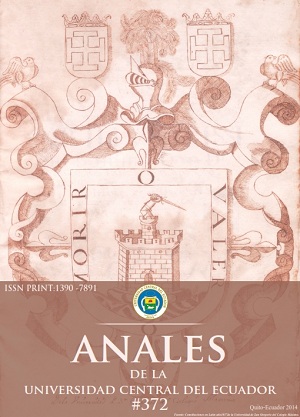Innovación en metodologías didácticas y “Aprender a Aprender”
DOI:
https://doi.org/10.29166/anales.v1i372.1291Keywords:
Educational innovation, Intellectual skills, Methodology, Learning processesAbstract
Educational innovation requires rethinking education and activities that tend to break down traditional structures to improve educational processes in all its aspects . One aspect in which to innovate is the teaching methodologies through the development of intellectual skills that encourage students in learning to learn . The proposal consists of five steps that must be handled by the teacher and an explicit process that must be known by both the teacher and the student . The five steps are: define the skill , sample from a real case, the development process for teaching the skill , in such a case of course , apply to a different exercise individually or in teams. Of these steps, the number three is fundamental to the proposal as it requires that the teacher explicitly indicate the times required for the development of each logical intellectual skills ( observe, describe , classify, compare , relate, define, analyze , synthesize, ... ) . Every moment is due on processes for developing the intellectual capacity of the student while learning to ride to learn from their own experiences and processes, this will encourage and develop a complex and creative thinking.
References
• ABRIL, Julio; FAYA Marina. (2005) Metodología de estudio para Aprender a Aprender. Magisterio del Río de la Plata. 1ra Edición. Argentina.
• ANDRADE, Xavier; ENRÍQUEZ, Jorge; ROMO, Pablo. (2012) Destrezas Intelectivas. Ediciones Ecuador del Futuro. Tercera Edición. Ecuador
• DÍAZ BARRIGA, Frida; HERNÁNDEZ ROJAS Gerardo. (2002) Estartegias Docentes para el Aprendizaje Significativo. Serie McGraw-Hill. México.
• LÓPEZ Lerís, M. D Y LACLETA, Sein-Echaluce M. L. (2009). Una experiencia de Innovación docente en el ámbito universitario. Uso de las nuevas tecnologías. Revista Arbor (Madrid). Vol 185. 93-110.
• LITWIN, Edtih. (2008) El oficio de Enseñar. Condiciones y Contextos. Editorial Paidós. Argentina.
• FIDALGO Blanco, A. (2008). Innovación educativa en la universidad. La asignatura pendiente. Innovación sin fronteras. Revista Madrid.
• ORTIZ Flor, B Y GARCÍA N (2011). Práctica de Aprendizaje Servicio. Llevando Luz. Actas I Congreso Internacional sobre Aprendizaje, Innovación y Competitividad (Madrid). 516-520.
• LÓPEZ PASTOR, V. M. (coords.). (2009). Evaluación formativa y compartida en educación superior. Propuestas, técnicas, instrumentos y experiencias. Madrid. Narcea.
• VARIOS. (2005) Potenciar la capacidad de Aprender a Aprender. Tomo 1. Colección para Educadores. Editorial Alfaomega. España
• http://innovacioneducativa.wordpress.com
• http://www.multiversidadreal.edu.mx/que-es-el-pensamiento-complejo.html
• http://www.uv.mx/blogs/innovaedu/que-es-innovacion-educativa/


